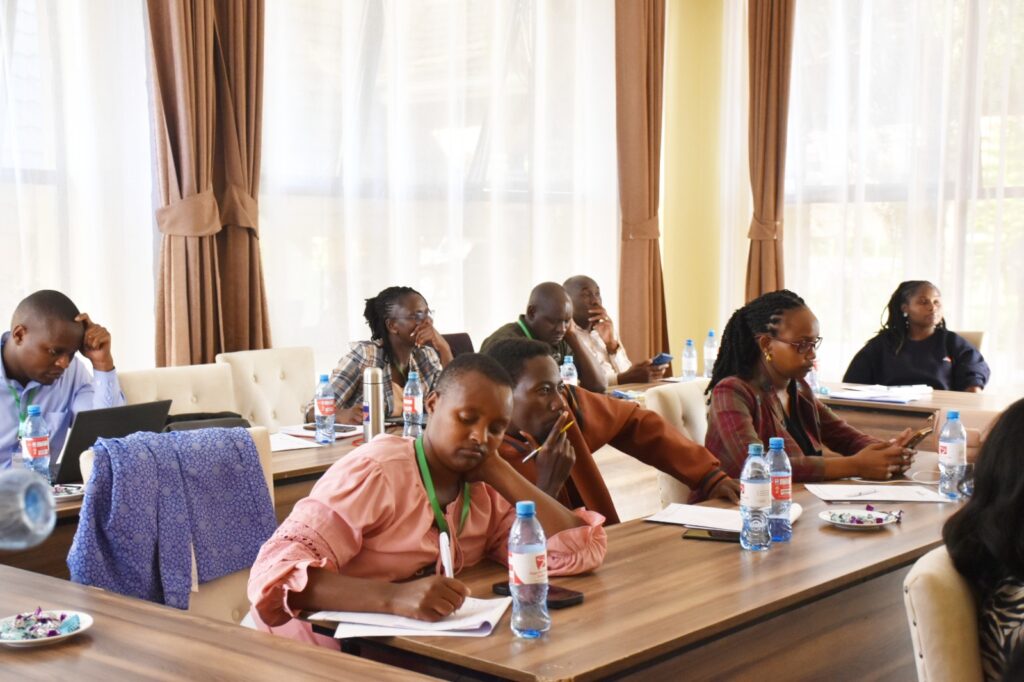
CONCEPT NOTE
INTERNATIONAL TRAINING ON DEVELOPING BANKABLE BUSINESS PLANS FOR SUSTAINABLE FOREST-BASED ENTERPRISES
COURSE BACKGROUND
Forest-based enterprises, particularly those driven by small-scale producers and local organizations, play a critical role in advancing sustainable livelihoods, preserving biodiversity, and supporting climate resilience. However, a major barrier to the growth and success of these enterprises is limited access to financing. This is often due to a lack of compelling, well-structured business plans that meet the expectations of investors and financial institutions.
This course, developed under the ECAS framework, aims to bridge this gap by equipping forest producers, small enterprises, and business support personnel with the knowledge and skills to develop bankable business plans. These are plans that not only reflect sound financial planning and market understanding, but are also aligned with the requirements of various investors, from commercial banks to impact investors and development finance institutions.
By enhancing the capacity of forest-dependent communities and entrepreneurs to articulate their business vision in financially credible terms, the course contributes to building inclusive value chains and scaling up forest-based enterprises in ways that contribute to the Sustainable Development Goals (SDGs).
COURSE OBJECTIVES OF THE TRAINING
Upon successful completion of this course, participants will be able to:
- Understand the key elements that make a business plan bankable and investment-ready.
- Identify the financial and operational needs of forest-based enterprises at different stages of their development.
- Collect and organize information effectively across the ten essential steps of a bankable business plan.
- Analyze the financing criteria used by different types of investors and funding institutions.
- Present and position their business plans in a way that improves access to external finance and investment.
- Use their business plan as a practical tool for strategic planning, management, and growth.
WHAT YOU WILL LEARN
Throughout the course, participants will gain a practical understanding of:
- The definition and characteristics of a bankable business plan.
- A step-by-step process for gathering and structuring business information into a compelling plan.
- The lifecycle of a forest-based enterprise and how financing needs evolve over time.
- Investor perspectives: What different investors look for and how to tailor plans accordingly.
- Practical ways to use the business plan to secure funding, partnerships, and scale-up support.
DURATION AND PROGRAM
TARGET PARTICIPANTSThis course is designed for a wide range of stakeholders engaged in forest-based enterprises and natural resource management. It is particularly valuable for small-scale forest producers and members of their organizations who have business ideas with potential for growth and are seeking to improve their ability to attract investment. Staff from producer cooperatives, community forestry groups, and rural development organizations will benefit from gaining practical skills in business planning and financial structuring. The course is also highly relevant for small and medium-sized enterprise (SME) advisors, development practitioners, and technical support staff who work directly with forest enterprises or within forest value chains. Additionally, professionals involved in finance, investment, or donor-funded projects related to sustainable forestry, climate resilience, and rural entrepreneurship will find this course an important asset in building capacity for bankable and impactful forest-based businesses.
TRAINING STYLE
The modules will be taught through PowerPoint presentations, and lectures and will include a case study/field visit, breakout sessions, case studies and other interactive discussion components.
The course will also include a few guest speakers, both in person and via Zoom and other online learning platforms for overseas speakers. This provides useful real-world insights alongside the more theoretical aspects of the course.
The conference faculty shall consist of experienced decision makers, as well as practitioners and representatives from established educational and research institutions active around climate change, engineering and international development. Throughout the course, theoretical presentation of concepts will be moderated and more group discussions and plenary engagements will be optimized. PowerPoint presentations will be made by facilitators and resource persons, to highlight key concepts before embarking on group work.
TRAINING MODULES
| No | Module | Details | |
| 1. | Introduction to Bankable Business Planning |
This module explains what makes a business plan “bankable” and explores the foundational principles of business planning for forest enterprises.
The key topics include:
|
|
| 2. | Develop Your Bankable Business Plan – Steps 1 to 5 |
This module walks participants through the first half of the ten-step process for developing a strong, structured business plan.
The key topics include:
|
|
| 3. | Develop Your Bankable Business Plan – Steps 6 to 10 |
Participants continue building their business plans, focusing now on the financial and strategic aspects necessary for bankability.
The key topics include:
|
|
| 4. | Using Your Bankable Business Plan to Access Funding |
The final module focuses on applying the completed business plan to secure finance and build sustainable partnerships.
The key topics include:
|
|
GENERAL NOTES
- Training manuals and additional reference materials are provided to the participants.
- Upon successful completion of this course, participants will be issued with a certificate.
- We can also do this as a tailor-made course to meet organization-wide needs. Contact us to find out more: info@ecasiafrica.org.
- Payment should be sent to our bank account before the start of training and proof of payment sent to: info@ecasiafrica.org.
ABOUT ECAS INSTITUTE
The ECAS Institute designs and delivers independent and targeted training, research, and consulting services. Our work focusses on climate change and resilience building, carbon markets, renewable energy, nature-based solution, biodiversity conservation, agriculture and food systems, We are located in Nairobi Kenya and work across the African region. We have implemented training and research assignments in Kenya, Tanzania, Uganda, South Sudan, Somalia, Malawi, Rwanda, Congo, and South Africa. Globally, we have supported our partners from the UK, Denmark, Italy, Sweden, Germany, and USA.

